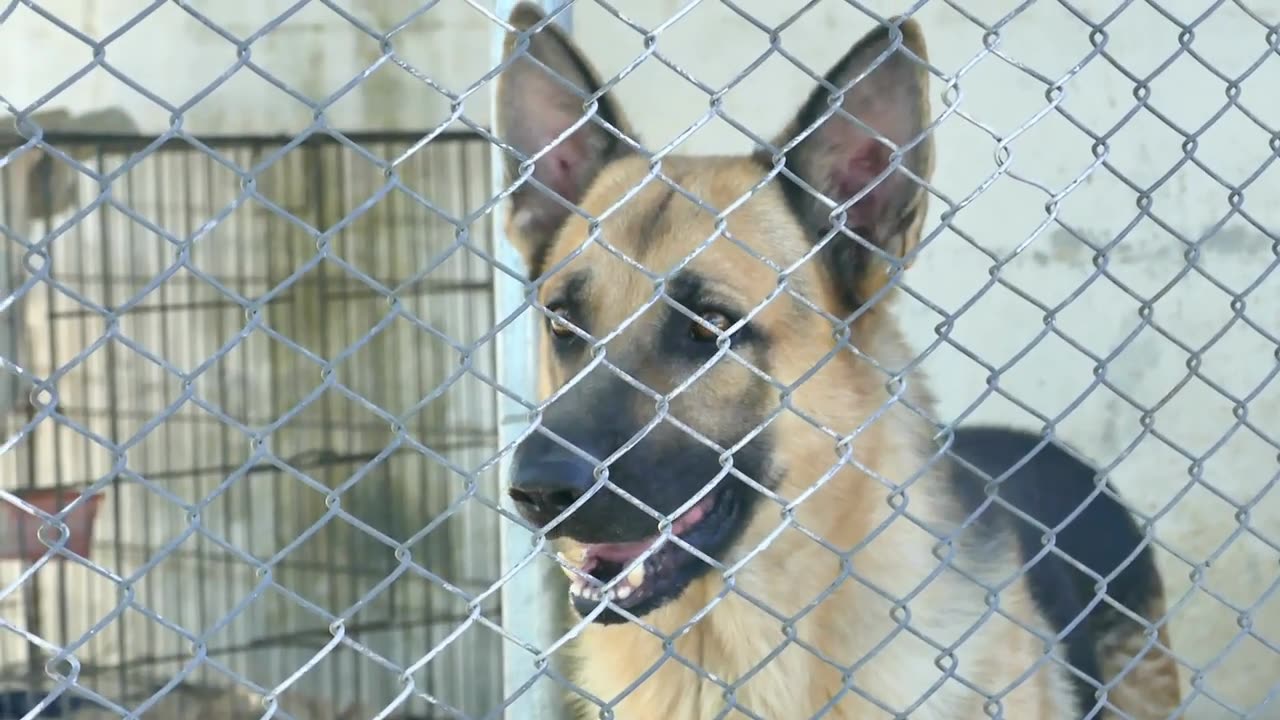Premium Only Content

DOGS BARKING!! Angry Dogs | Real Guard Dogs | Defending You
Dogs barking can serve various purposes, including as a means of communication, warning, or defense. When dogs bark aggressively or defensively, it's essential to understand the context and the reasons behind their behavior. Here are some common reasons why dogs might bark aggressively:
Perceived Threat: Dogs often bark when they perceive a threat to themselves, their territory, or their family. This can be a protective response, and they may be trying to deter the perceived threat.
Fear: Dogs may bark aggressively when they are afraid. This is often a defensive response intended to make the source of their fear go away.
Territorial Behavior: Many dogs are territorial by nature and may bark at intruders or unfamiliar people or animals encroaching on their territory.
Guarding Instinct: Certain breeds have strong guarding instincts. They may bark aggressively to protect their owners or property.
Frustration: If a dog is confined or restrained and cannot reach something they want, they may bark out of frustration. This can be mistaken for aggression.
Lack of Socialization: Dogs that haven't been properly socialized may react aggressively out of fear or anxiety when encountering new people or animals.
Pain or Discomfort: Dogs in pain or discomfort may bark aggressively as a way to communicate their distress.
Lack of Training: Dogs that haven't been trained to control their barking may bark excessively, including in aggressive or defensive situations.
It's important to note that while barking can be a natural behavior, excessive or aggressive barking can be a problem, especially if it leads to dangerous situations or complaints from neighbors. Proper training, socialization, and understanding your dog's triggers are essential for managing aggressive barking.
If you have a dog that exhibits aggressive barking, consider seeking help from a professional dog trainer or behaviorist. They can assess the specific circumstances and triggers for your dog's behavior and provide guidance on how to address it effectively, ensuring the safety of both your dog and others. Additionally, always prioritize the safety of yourself and others when dealing with a dog displaying aggressive behavior.
-
 11:54
11:54
Tundra Tactical
9 hours ago $5.97 earnedIf You Laugh at These Gun Memes, the ATF Gets Your Dog – Tundy Meme Review
55.5K2 -
 4:08:53
4:08:53
Cewpins
5 hours agoSunday Sesh🍃weed💨420🔥!Giveaway !mj
17.6K11 -
 2:05:32
2:05:32
Nerdrotic
8 hours ago $3.35 earnedForbidden Inventions and Shadow Cover-ups | Forbidden Frontier #109
43.4K5 -
 2:57:01
2:57:01
JahBlessGames
4 hours ago🎉THPS w/ Cheap | Variety Ting | Music too??
7.56K1 -
 3:21:46
3:21:46
Barry Cunningham
15 hours agoPRESIDENT TRUMP HAS EXPOSED BARACK OBAMA AS A TRAITOR! AND MORE NEWS!
57.9K110 -
 2:19:12
2:19:12
THOUGHTCAST With Jeff D.
4 hours ago $0.02 earnedLATE NIGHT FORTNITE. Game & News Chat with Jeff D.
3.84K -

Cancel This Podcast
6 hours ago $0.65 earnedDRAGON QUEST X ONLINE VERSION 5.1: SUPER DEMON WORLD WAR! - CTP Gaming!
9.4K -
 1:51:35
1:51:35
CasualGaming916
6 hours agoHelldivers 2 - Super Helldive
8.09K -
 LIVE
LIVE
CharleyHornsePlays
5 hours agoGaming and SUNDAY NIGHT GIVEAWAY DRAWING!! | 7.20.25
2 watching -
 3:03:49
3:03:49
This is the Ray Gaming
5 hours ago $0.06 earnedSunday Night PUBG | Rumble Premium Streamer
1.94K1